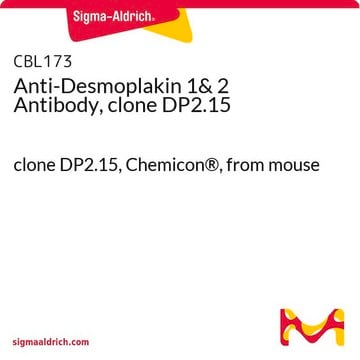D0571
Monoclonal Anti-DICER1 antibody produced in mouse
~1.0 mg/mL, clone DCR1, purified immunoglobulin, buffered aqueous solution
Synonym(s):
Anti-DCR1, Anti-HERNA, Anti-Helicase with RNASE motif, Anti-Helicase-MOI, Anti-K12H4.8-LIKE
About This Item
Recommended Products
biological source
mouse
Quality Level
conjugate
unconjugated
antibody form
purified immunoglobulin
antibody product type
primary antibodies
clone
DCR1, monoclonal
form
buffered aqueous solution
mol wt
antigen ~218 kDa
species reactivity
human, mouse, rat
concentration
~1.0 mg/mL
technique(s)
western blot: 2.5-5.0 μg/mL using whole extract of human HEK-293T cells
isotype
IgG1
UniProt accession no.
shipped in
dry ice
storage temp.
−20°C
target post-translational modification
unmodified
Gene Information
human ... DICER1(23405)
mouse ... Dicer1(192119)
rat ... Dicer1(299284)
General description
Application
Biochem/physiol Actions
Physical form
Disclaimer
Not finding the right product?
Try our Product Selector Tool.
related product
Storage Class Code
12 - Non Combustible Liquids
WGK
nwg
Flash Point(F)
Not applicable
Flash Point(C)
Not applicable
Choose from one of the most recent versions:
Certificates of Analysis (COA)
Don't see the Right Version?
If you require a particular version, you can look up a specific certificate by the Lot or Batch number.
Already Own This Product?
Find documentation for the products that you have recently purchased in the Document Library.
Our team of scientists has experience in all areas of research including Life Science, Material Science, Chemical Synthesis, Chromatography, Analytical and many others.
Contact Technical Service








